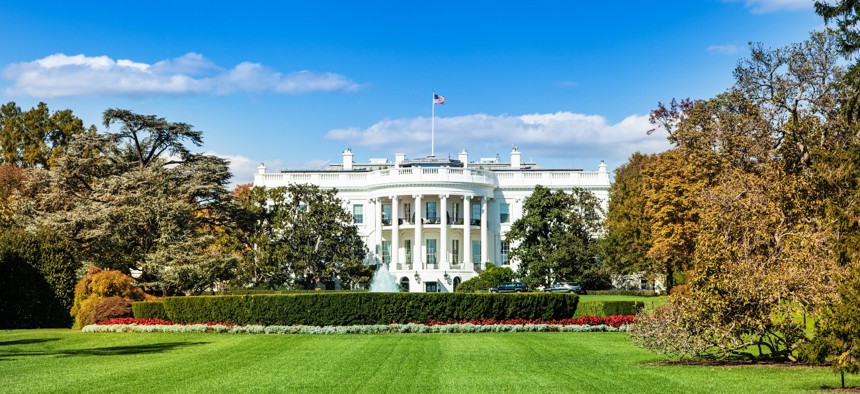
By Miljan Mladenovic / Shutterstock.com
Biden’s Campaign Must Address the Need for ‘Nuts-and-Bolts’ Repairs Across the Federal Bureaucracy, Professor Argues
An upcoming series will lay the framework for a first-term agenda to fix structural government issues should the Democratic presidential nominee win in November.
Democratic presidential nominee former Vice President Joe Biden must address how he will fix failures in services provided by the government in order to deliver on his ambitious policy goals, such as advancing racial equality and reviving the struggling economy, according to an upcoming series by a professor.
On Wednesday, Paul Light, the Paulette Goddard Professor of Public Service at New York University, published the first in a new series through the Brookings Institution. From 1986 to 2000, the number of highly visible government breakdowns––which he defined as situations that “permeate the public consciousness and...involve a government failure of some kind” in either the lead up or response––averaged about 1.4 per year, but after 2001 have averaged about 3.5, he found in his new research.
Examples include: the government’s involvement in the opioid crisis, shootings at the Army base Fort Hood, Boeing 737 MAX plane crashes and, now, the response to the coronavirus pandemic. “The Trump administration has more than tripled the number of breakdowns in George H.W. Bush’s first and only term, while the three post-2001 presidents have more than doubled their predecessors” in breakdowns, he wrote. Therefore, he said he believes this is an opportunity for Biden to showcase what he would do to fix this long-term issue.
“Biden’s website continues to promote his ‘make-government-work-for-the-people plan,’ but has not been updated to address the bureaucratic failures that emerged most obviously during the early days of the COVID-19 pandemic,” Light wrote in his introductory post. “Nor does the plan address the bureaucratic problems that undermine government effectiveness every day. Biden’s promised firewall between the White House and Justice Department and stronger whistleblower protections will signal change, but he has largely ignored the need for nuts-and-bolts repairs across [the] government.”
Light cited a Government Accountability Office report from June that highlighted some recent government breakdowns, such as inconsistencies in the Centers for Disease Control and Prevention’s coronavirus testing data, supply shortages in the strategic national stockpile, the Treasury Department and Internal Revenue Service sending about 1.1 million stimulus payments to deceased individuals, and the Labor Department’s antiquated system to distribute unemployment insurance, which hampered the government’s response to the pandemic.
He referenced a Pew Research Center poll that found in 2019, public trust in the government was at 17%, which was close to the historic low of 10% in 2011 and down from a high of 77% in 1964. Another poll from 2019 found that 64% of Americans believe low trust in government makes it more difficult to solve the nation’s problems.
In his upcoming posts, Light will cover how government breakdowns have led to the distrust of government; the public’s demand for major reform; the decrease in public support for Trump’s 2016 campaign promise to shrink the size and role of the federal government; an increase in personnel at the top of the federal leadership hierarchy; the true size of the federal workforce; and whether or not Congress and the executive branch can take on government reform. He will finish with a series of proposals based on his research that the next president could take on.
“We haven’t done much to repair government and to make it possible for [the] government to do its very best,” as President Jimmy Carter was the last president to take on major civil service and government ethics reform, Light told Government Executive in an interview earlier this week. His message to the Biden campaign is “you’ve got to talk about whether [the] government can deliver on the promises you’re making.”
Trump could also follow his advice, “but he would have to be more disciplined,” said Light. “He’d had to take firm control and really commit to rebuilding [the] government and he has shown no evidence of concern for that.”







